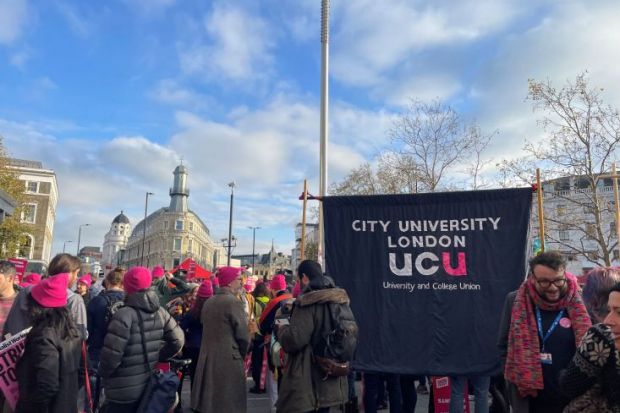Staff at UK higher education providers will receive a pay rise in their March wages after employers went ahead with a planned increase despite not reaching an agreement with the unions.
All those on the pay points covered by the national negotiations will receive 2 per cent extra or £1,000 – whichever is higher – with more to follow in August.
The Universities and Colleges Employers Association (Ucea) has rejected unions’ appeals for a pay rise more in line with the current rate of inflation, claiming its latest offer is at the limit of what the sector can afford.
University and College Union (UCU) negotiators had still hoped to nudge the award higher during talks facilitated by the Advisory, Conciliation and Arbitration Service (Acas) – which will continue next week.
But Raj Jethwa, Ucea’s chief executive, said the body regarded the pay side of the talks as complete and it has advised institutions to implement the pay rise, backdated to February.
“At the unions’ request, Ucea agreed that no uplift would be implemented until the beginning of March,” he said.
“We have respected this request but Ucea and the trade unions have also agreed that an impasse had been reached in respect of the pay uplift. While we very much regret this, the intention in bringing forward the 2023-24 pay round was to provide support at this time to staff facing cost-of-living pressures.”
Institutions face a challenge to get some of the uplift into March pay packets, he added, and it was felt “it would have been unfair to delay the early pay uplift to all staff for any longer”.
Eventually staff on the lowest end of the pay scale will receive a rise of 8 per cent, with those at the highest point receiving 5 per cent. Unions had argued for a double-digit rise, but experts predicted that they would settle on 8 per cent for all.
Mr Jethwa said talks facilitated by Acas had been “constructive” and “further progress has been made towards the review of the national HE pay spine” that could again raise the wages of the lowest paid. He said talks would now move on to “non-pay issues”.
UCU cancelled planned strike action in late February and early March to allow for a “period of quiet” while the talks took place. The union faced a backlash to this decision from some members who called it “undemocratic”. In the face of such criticism, it held an indicative online poll and has revealed that 71 per cent of its members who voted backed the pause.
The union’s higher education committee was meeting on 24 February to discuss next steps and members were voting in a re-ballot on whether to extend the union’s mandate for industrial action by another six months.
A joint statement from higher education unions confirmed talks would continue for another week and said they had “continued to push employers…on the issues of pay, workload, casualisation and equality pay gaps”.
The unions said they were “disappointed that Ucea has moved to instruct its members to impose the first element of the 2023-24 pay proposal. This is despite nothing yet having been agreed on pay. The unions will continue to make that clear in negotiations.”
Such a move was “regrettable, given the strain it inevitably places on the current Acas-facilitated negotiations”, unions said.
请先注册再继续
为何要注册?
- 注册是免费的,而且十分便捷
- 注册成功后,您每月可免费阅读3篇文章
- 订阅我们的邮件
已经注册或者是已订阅?



